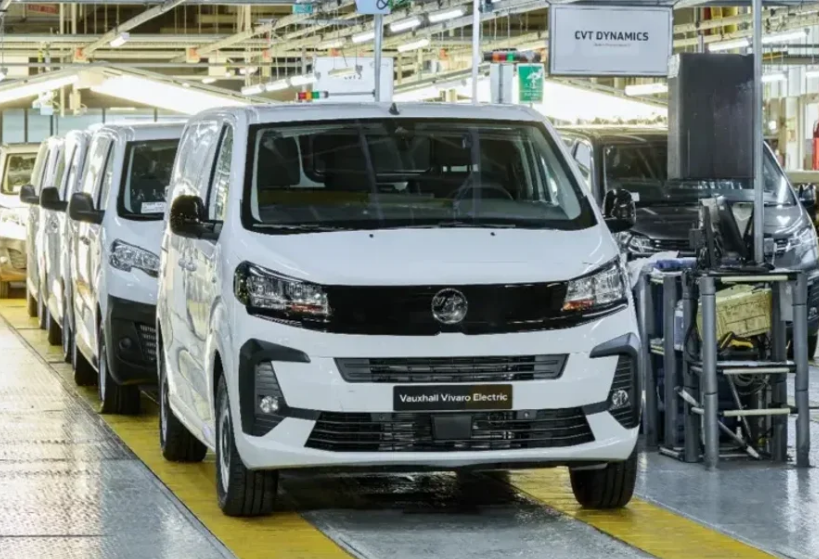Introduction: The Future of Electric Vans is Here
The transition to electric vehicles (EVs) is one of the most significant changes happening in the transportation sector. Electric van, in particular, are making their mark in industries that rely on deliveries and commercial transport. Soon, EV will cost less than their diesel counterparts, offering businesses and individuals alike a more affordable, eco-friendly option for transport. This shift has the potential to reshape how goods are delivered, benefiting both companies and the environment.
Why Electric Vans Will Cost Less Than Diesel Vans in the Future
The price gap between electric van and diesel vans is narrowing, and it’s predicted that electric models will soon be cheaper in the long run. Here’s why:
- Lower Fuel Costs: Charging an electric van is much cheaper than fueling a diesel van, leading to considerable savings over time. Electricity prices are stable compared to fluctuating diesel prices.
- Reduced Maintenance: With fewer moving parts than diesel engines, EV require less maintenance and have a longer lifespan. This results in reduced downtime and repair costs.
- Falling Battery Prices: As battery technology improves and production costs decrease, electric vehicles will become more affordable to produce, lowering the overall price of EV.
- Government Incentives: Many governments are offering subsidies and tax incentives for businesses to switch to electric vehicles, making the transition more affordable.
Key Specifications of Electric Vans: What to Expect
Electric van are built to meet the needs of modern businesses. Here are some key specifications that make them an appealing choice:
- Battery Range: Electric van typically offer a range of 150–250 miles per charge, ideal for urban and regional deliveries.
- Charging Time: With rapid charging capabilities, electric van can be charged up to 80% in just 30–45 minutes, minimizing downtime.
- Load Capacity: Despite their electric drivetrains, these vans maintain a high payload capacity, ensuring that they can handle heavy deliveries.
- Performance: Electric drivetrains offer smooth, quick acceleration, providing excellent driving experience in both city and highway environments.
Top Features of Electric Vans That Make Them an Attractive Choice
Electric van are not only eco-friendly but come with several features that make them an ideal choice for businesses:
- Eco-Friendly: Electric van produce zero emissions, significantly reducing your business’s carbon footprint.
- Lower Running Costs: With minimal maintenance and cheaper charging costs, EV are a cost-effective option in the long run.
- Government Support: Many countries offer incentives like tax rebates and grants to businesses that make the switch to electric vehicles.
How Electric Vans Will Soon Be Cheaper Than Diesel Vans
The overall cost of owning an EV will soon surpass that of owning a diesel van due to several factors:
- Technological Advancements: The continuous improvements in battery efficiency and charging infrastructure make EV more convenient and cost-effective.
- Increased Production: As demand for electric vans increases, manufacturers will scale up production, leading to a drop in unit costs.
- Environmental Incentives: Companies that adopt electric vans benefit from government programs that incentivize green practices, including rebates and tax deductions.
Environmental Impact: The Sustainability Advantage of Electric Vans
One of the biggest advantages of EV is their environmental impact. EV contribute to reducing greenhouse gas emissions and air pollution, helping businesses to meet sustainability goals. By choosing electric van, companies play a vital role in creating a cleaner, greener world.
Why Switching to Electric Vans Makes Business Sense
For businesses, the switch to EV is a smart financial decision. Not only do they reduce overall operating costs, but they also offer an opportunity to position your business as a sustainability leader. Many customers today are increasingly looking for businesses that prioritize eco-friendly practices, making electric vans a valuable tool in enhancing brand reputation.
The Future of Electric Vans: What’s Ahead?
As technology continues to evolve, the future of EV looks promising. Battery costs will continue to fall, and the charging infrastructure will expand, making electric vans even more convenient. As electric vans become more affordable and efficient, they will become the go-to choice for businesses worldwide.
FAQs:
- How much will electric vans cost compared to diesel vans? Electric vans are expected to cost less than diesel vans in the near future due to reduced battery costs, improved production processes, and government incentives.
- Are electric vans as durable as diesel vans? Yes, electric vans are highly durable, with fewer parts prone to wear and tear. They require less maintenance and last longer than diesel vans.
- Can electric vans handle long-distance deliveries? Modern electric vans have a range of up to 250 miles per charge, making them suitable for both short and long-distance deliveries.
- What government incentives are available for electric vans? Many governments provide tax credits, subsidies, and financial incentives for businesses that switch to EV, reducing the initial cost.
Conclusion: Embrace the Future with Electric Vans
The future of transportation is green, and EV are at the forefront of this revolution. With falling prices, improved technology, and government incentives, electric van will soon be the most affordable and practical option for businesses. The shift from diesel to electric is not just a trend; it’s a sustainable change that will benefit both your bottom line and the environment.

